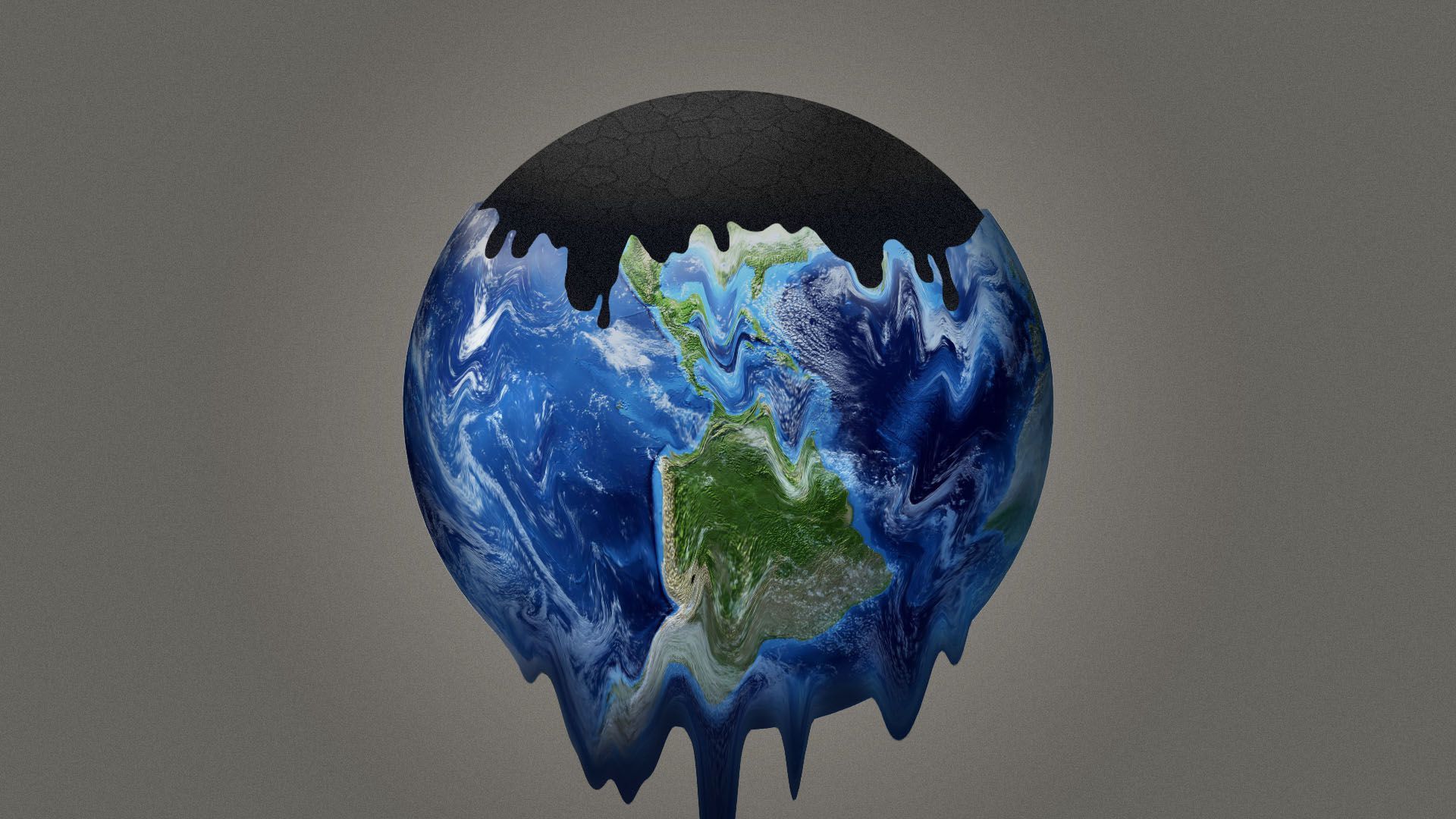Making sense of the UN's climate conference coronavirus delay
Add Axios as your preferred source to
see more of our stories on Google.

Illustration: Sarah Grillo/Axios
The scuttling of November's pivotal UN climate conference is the starkest sign yet of how coronavirus is throwing a wrench into efforts to combat global warming. But like the wider relationship between the coronavirus and climate initiatives, the ramifications are ... complicated.
Driving the news: UN officials announced Wednesday that the annual summit to be held in Glasgow, Scotland, is postponed until some unknown time next year.
Why it matters: Axios' Amy Harder reported yesterday that this isn't just another major convention scuttled by coronavirus.
- The event was to be a make-or-break moment for countries to increase their emissions-cutting ambitions — the most important annual climate conference since the Paris Agreement was struck in 2015.
The intrigue: The conference was to start just days after the U.S. presidential election, a contest that will be immensely important for global climate diplomacy.
- President Trump is pulling the U.S. out of Paris. Rival Joe Biden is vowing not only to remain in, but also to toughen U.S. policies and convene talks to boost other nations' ambitions.
What they're saying: "The current situation is awful, but it unintentionally creates some needed distance between the U.S. election and the [UN conference], which had been scheduled to start six days later," said Andrew Light, who was a senior climate aide in Obama's state department.
- "I’m not even sure we’ll know the results of the election by then. It’s no secret some countries had been looking at various options for how they would position themselves in part responding to the results of our election," he tells me.
Another veteran of global climate talks agrees with that sentiment and also suggests other reasons why the delay, occurring for tragic reasons, could be tactically helpful.
- “I don’t think a lot of countries are in a great place to increase their ambition this year,” the source tells me, adding that the economic and human consequences of COVID-19 will be better known.
The big picture: Amy notes that some advocates, including the International Energy Agency, are calling on governments to incorporate policies into economic recovery plans that are more supportive of clean energy and action on climate change.
- “Soon, economies will restart. This is a chance for nations to recover better, to include the most vulnerable in those plans, and a chance to shape the 21st-century economy in ways that are clean, green, healthy, just, safe and more resilient," Patricia Espinosa, the top UN climate official, said in announcing the delay.
But, but, but: Those opportunities aside, the delay comes as many nations' efforts to transform the goal of Paris — to keep global temperature rise below 2 degrees Celsius — into concrete steps were already faltering, Amy writes.
- The Guardian adds that "several prominent climate experts had feared that delaying the talks would mean governments eased off on pursuing stronger commitments to fulfill the Paris goals."
